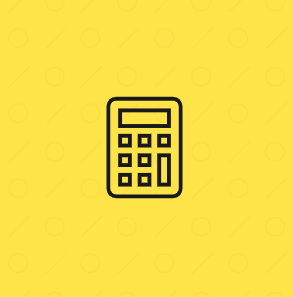Save on sales tax compliance this filing season
by August 7, 2025
October is one of the busiest sales tax filing months of the year. Almost all businesses, regardless of their filing frequency, will have a filing due date in October. How can businesses use automation to save time, avoid errors, and file on time during these busy filing seasons?
How to save money and streamline your sales tax with automation
Streamlining your sales tax collection, reporting and filing with TaxJar allows your business to spend money, time and resources on the activities that will actually benefit your bottom line. See what TaxJar customers have to say here.
For customers that have multiple filing frequencies, across multiple states, these busy filing months can be challenging.

By using TaxJar’s AutoFile, businesses don’t have to worry about due dates, or varying state filing requirements. TaxJar will take all your sales tax information and file on your behalf, on time.
Frequently asked questions
Filing and remittance is only one aspect of sales tax compliance. We’re sharing a few other most commonly asked sales tax questions and answers:
General sales tax & nexus questions
Q: Do only states have sales tax? Or do counties/cities also have sales tax?
A: Most states have a statewide sales tax, but also allow local jurisdictions like counties, cities or special taxing districts to also impose a sales tax.
This is why collecting the correct amount of sales tax can be so tricky. In most cases, sales tax is collected based on the full combined state, local and other sales tax rate at your buyer’s ship to location. For example, while you might be required to collect 5% sales tax from a buyer in one corner of your state, but you might be required to collect 9.87% in sales tax from a buyer in another corner of your state.
However, some states only have one statewide sales tax rate. See a list of states that only have statewide sales tax rates here.
Q: Does the sales tax depend on where the company is based or where the customer is based?
This depends on the state, but in the vast majority of cases e-commerce businesses should collect sales tax based on the sales tax rate at their buyer’s ship to address.
However, there are two common exceptions. Some states are “origin-based” sales tax states. This means that if your business is based out of that state, you would be required to collect sales tax at your business’s location rather than the buyer’s location. This is, however, uncommon.
Also, as more and more states require remote (out-of-state) sellers to collect sales tax, they realize that collecting the right amount of sales tax from buyers in every corner of the state could become confusing.. So some states allow remote sellers to charge a single sales tax rate to every buyer in the state.
The TaxJar API takes all of these very specific use cases into account so your business collects the right amount of sales tax in the US’s more than 14,000 taxing jurisdictions.
Q: We upload CSV files to TaxJar. Most are retail sales, but some of these sales are not taxable as they are sold to resellers. How do we mark those transactions wholesale and not taxable in TaxJar?
A: If you sell wholesale items or make sales to exempt entities such as government or educational institutions, you can mark those as exempt in your Reports by designating those individual transactions in your TaxJar account as exempt.
Read more about designating transactions as sales tax exempt in your TaxJar account here.
Q: I sell multi-channel. Do I meet economic nexus when the total from all channels meets the nexus minimum, or is it per channel? Does TaxJar take into account each channel?
A: States consider your business’s total sales. So sales you make through an online shopping cart or ERP count toward the total nexus threshold. Further, many states count sales you make via marketplaces when it comes to determining if you have economic nexus. That is even if the marketplace collects sales tax on your behalf.
Example: You sell through a Shopify store and through you sell subscriptions through Chargebee. You also have an Amazon store, though Amazon collects sales tax on your behalf. Most states would consider all of your sales – through Shopify, Chargebee and Amazon, as counting toward the state’s economic nexus threshold.
With sales tax, there are always exceptions. If you have questions about state economic nexus thresholds, check out our Sales Tax by State: Economic Nexus blog post, or contact your state’s taxing authority.
Q: Does a foreign business (headquartered outside the US) have to pay sales taxes in the US?
A: As with sellers in the US, this depends on if your business has nexus in the US. Business factors that create sales tax nexus include:
- A location
- Inventory
- Employees/Contractors
- Affiliates
- Temporary Business such as at a tradeshow or conference
- Economic nexus (exceeding a state’s gross sales or transaction volume threshold)
Even if your business is headquartered outside the US, you may have business factors that create nexus in the US. And if you have nexus in a US state then that state requires that you register for a ales tax permit and collect sales tax from buyers in that state.
Read more about US sales tax for international sellers here.
Marketplace facilitator law questions
Q: Even if Amazon is acting as a Marketplace Facilitator for states in which I have nexus (I.e. inventory stored there), will I still need sales tax permits for these states so I can file state sales tax returns?
A: We recommend checking on a case by case basis before you register for a sales tax permit in a state where you only sell via online marketplaces that collect sales tax on your behalf.
Read more about Marketplace Facilitator laws by state here.
A few states have made rulings on whether a seller who is currently registered and only sells via online marketplaces can cancel their sales tax registrations. Read more in “I only sell on marketplaces. Can I cancel my sales tax registration?”
Also keep in mind that most states want businesses headquartered in their state to remain registered. Additionally, if you make any sales outside of a marketplace, you likely still need your sales tax permit.
Q: With marketplace facilitator laws – are companies like eBay only required to collect sales tax for you as the seller, only if you’ve told them (ex: eBay) that you have nexus and must collect sales tax?
A: No. Marketplace facilitators are required to collect sales tax on any transaction in a state where they, the marketplace, is required to collect sales tax from buyers due to a marketplace facilitator law. The nexus of the individual 3rd party business is not a factor.
How TaxJar can help streamline your compliance
As you can see, sales tax compliance is challenging. There are so many important details that businesses must be aware of to stay compliant and avoid penalties. TaxJar can make compliance easier, by managing all the different aspects, including keeping you updated on where you have nexus, registering for sales tax permits, and automating sales tax filing and remittance. To learn more about TaxJar and get started automating your sales tax compliance, start a free, 30-day trial today.
Please note: This blog is for informational purposes only. Be advised that sales tax rules and laws are subject to change at any time. For specific sales tax advice regarding your business, contact a tax advisor.








